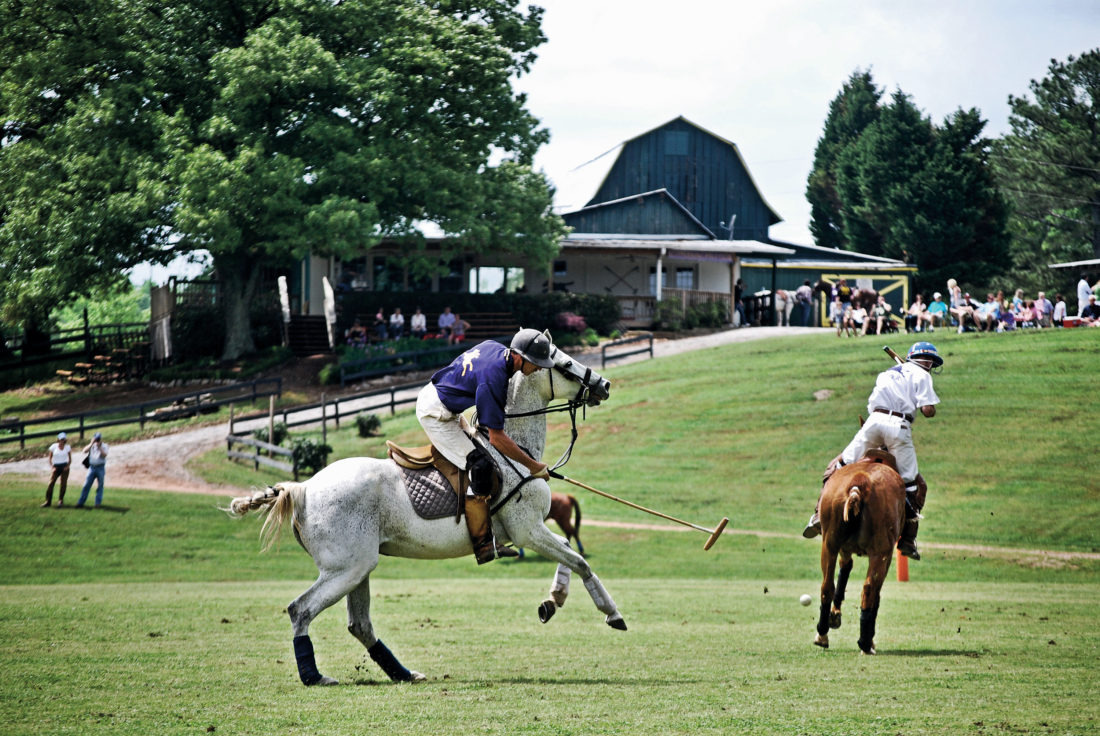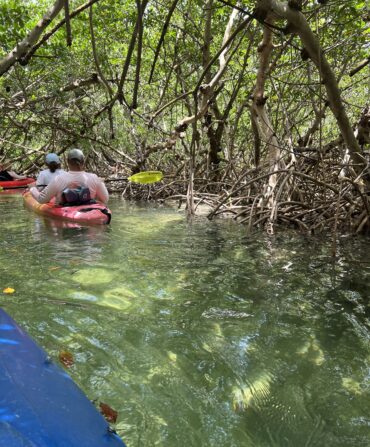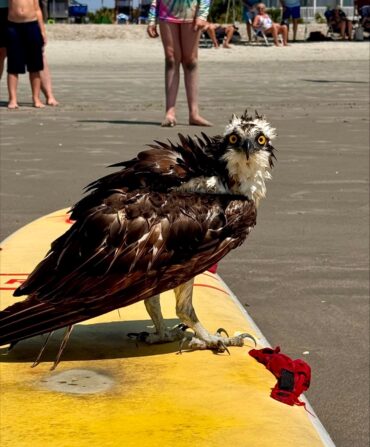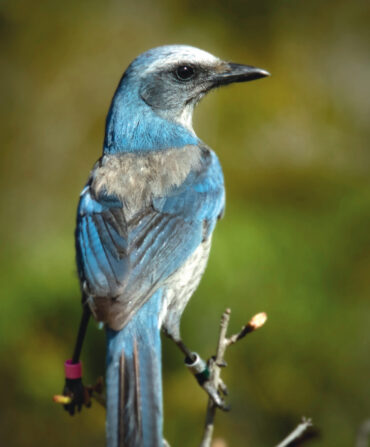Winston Churchill once famously told a team of Oxford University polo players, “A polo handicap is your passport to the world.” And while members of Georgia’s Scuppernong Polo Club probably aren’t going to quit their day jobs anytime soon for a life of international polo jet-setting, the sport has taken them places. All the way to Sweden, in fact.
Last September, Scuppernong member David Kaplan, a forty-nine-year-old Atlanta businessman, led a team of Scuppernong players to Stockholm for the U.S.-Sweden Polo Invitational, a friendly international competition and the first time a U.S. team ever played a polo match in Sweden. This fall, the Swedish dele-gation is returning the favor, traveling to Chukkar Farm, Scuppernong’s 173-acre home base in Cherokee County north of Atlanta, for a rematch (October 15 and 17). But if you think polo is reserved for only an elite few, you haven’t met the folks at Scuppernong. The club welcomes novices, and half of its twenty-four active players are women. “Polo looks difficult, but it’s really a lot easier than it looks,” says Kaplan, who has played for Scuppernong for the past two years. “If you already know how to ride a horse, you can be out on the field and playing after, maybe, ten lessons.”
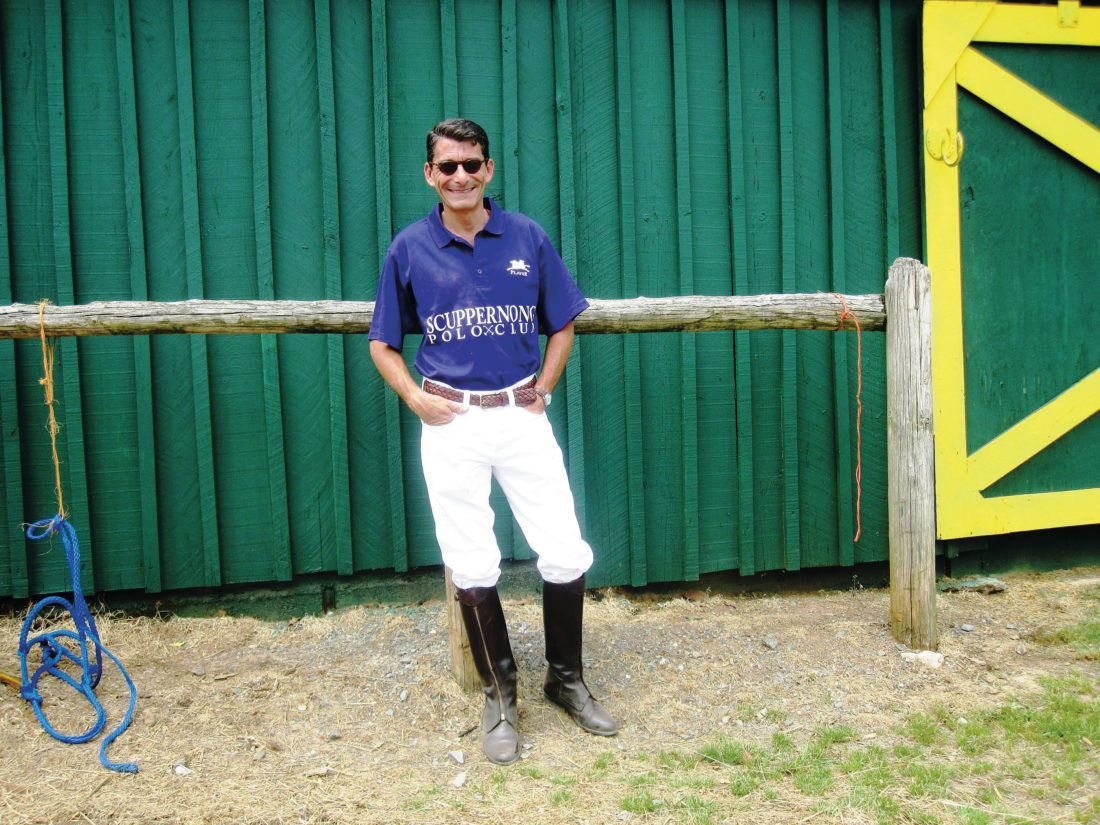
Photo: Becky Kaplan
Scuppernong member David Kaplan will captain the club against the Swedes.
Although polo enjoyed its greatest American prominence in the 1920s and 1930s, when such luminaries as Walt Disney, Will Rogers, and Darryl Zanuck imbued the sport with Hollywood glamour, it still attracts a small but passionate following, especially in Southern equestrian enclaves such as Palm Beach, Florida, and Aiken, South Carolina. And a surprising number of small polo clubs like Scuppernong are helping make the sport both accessible to newcomers and more affordable than most people think. “I see people come in that you would never expect,” says Jack Cashin, the club’s founder, a former restaurateur and Libertarian candidate for governor, and the owner of Chukkar Farm. “There is no demographic I could use that would describe a potential polo player.” The club’s roster includes a photographer, a social worker, a home builder, an equine dentist, the recent winner of a bikini contest, Cashin’s sixteen-year-old granddaughter, and two octogenarians—including Cashin himself, who at eighty-four ranks as the U.S. Polo Association’s oldest active registered player. “Our club really is a beginners’ club,” he says. “We teach riding. We teach polo. We lease older, trained polo ponies to new players who come in.”
At Chukkar Farm, a player can lease a pony for the entire season (May to November) for a reasonable $750, which covers food, tack, and horseshoes—everything but the player’s own gear. During the season, Scuppernong has twice-weekly scrimmages and matches each Sunday that often double as charity fund-raisers. Matches also feature three players per side instead of the customary four. “That reduction gives the players far more opportunities to hit the ball and get into the game,” Cashin explains. And there’s one more incentive Cashin cites for the continued interest in the sport. “If you play polo,” he says, “it’s a great way to pick up girls. I wish I were about forty years younger.”
Despite Scuppernong’s lighthearted approach, the team is still out for a little payback this fall. Last year, on unfamiliar ponies and suffering the effects of jet lag, the Americans ended up on the wrong end of a drubbing at the hands of the Swedish club. “They just beat the tar out of us,” Kaplan says. “But I think we have very good chances this year. I think we’ll be much more evenly matched.”
For more information, visit chukkarfarmpoloclub.com


